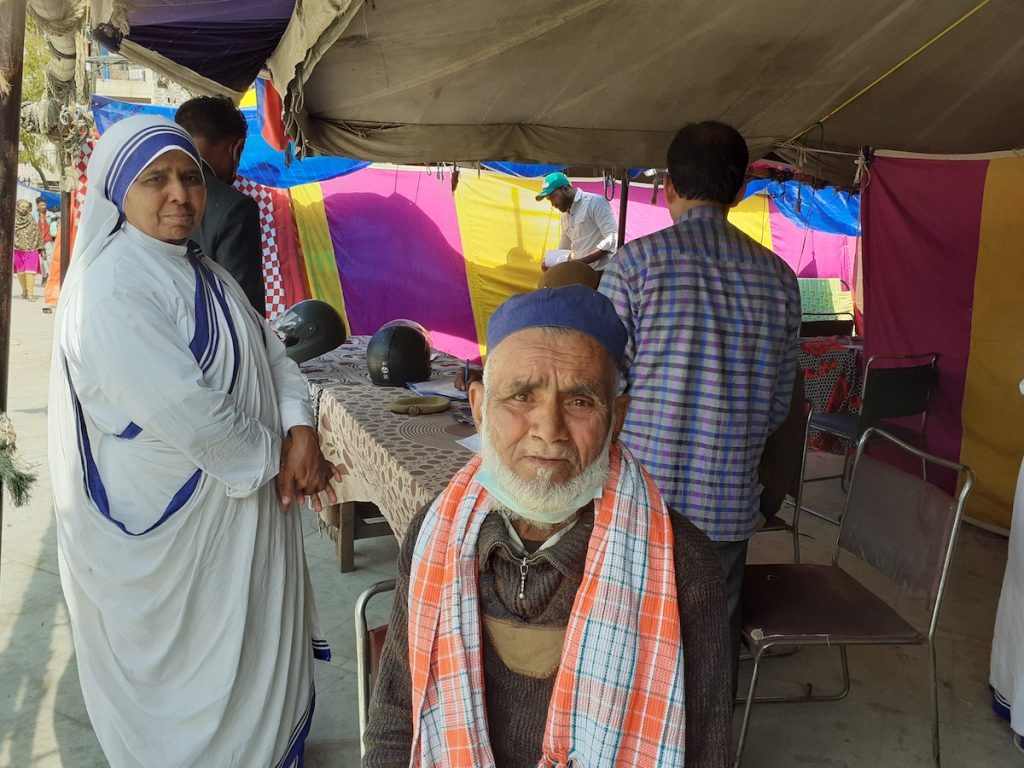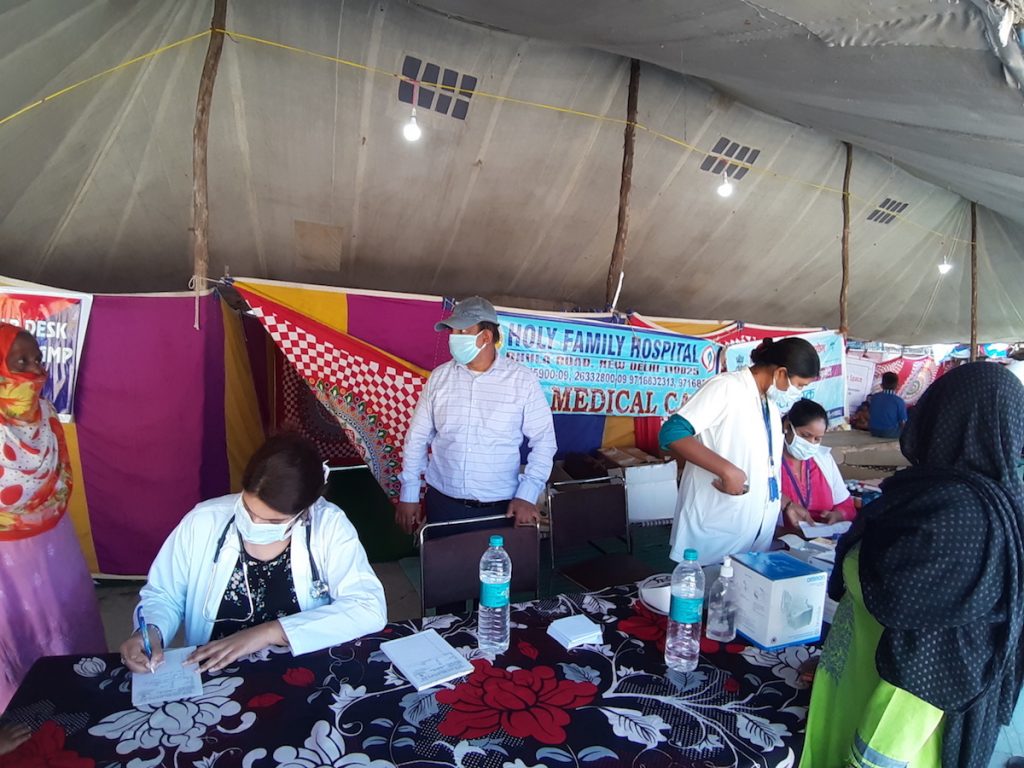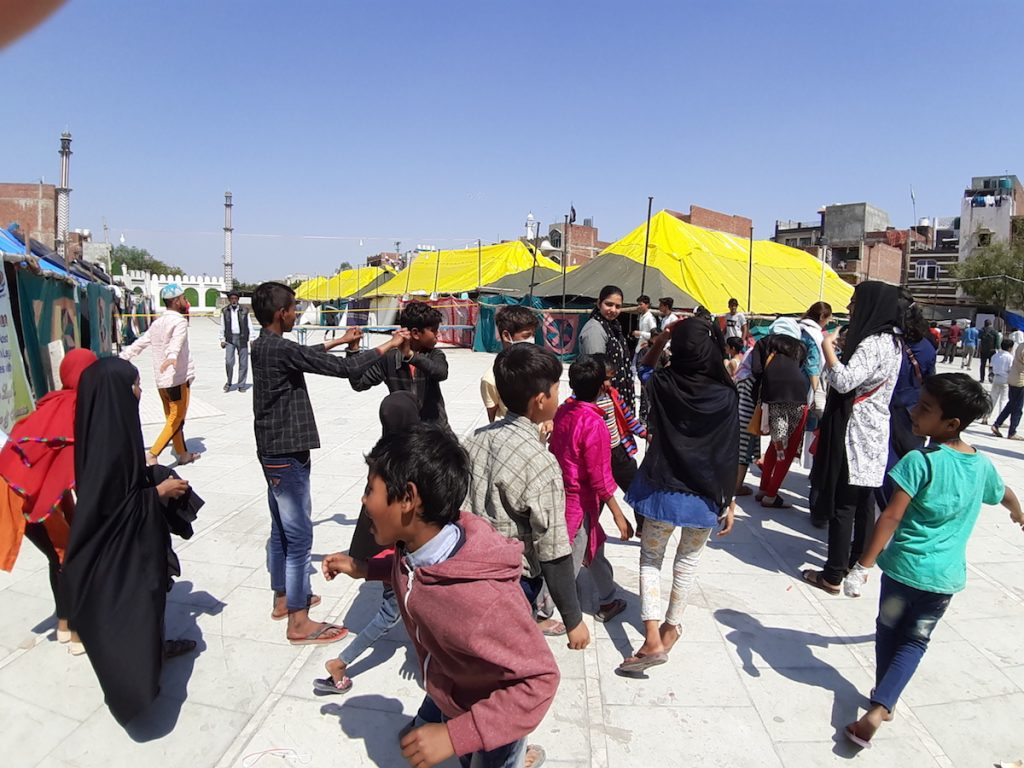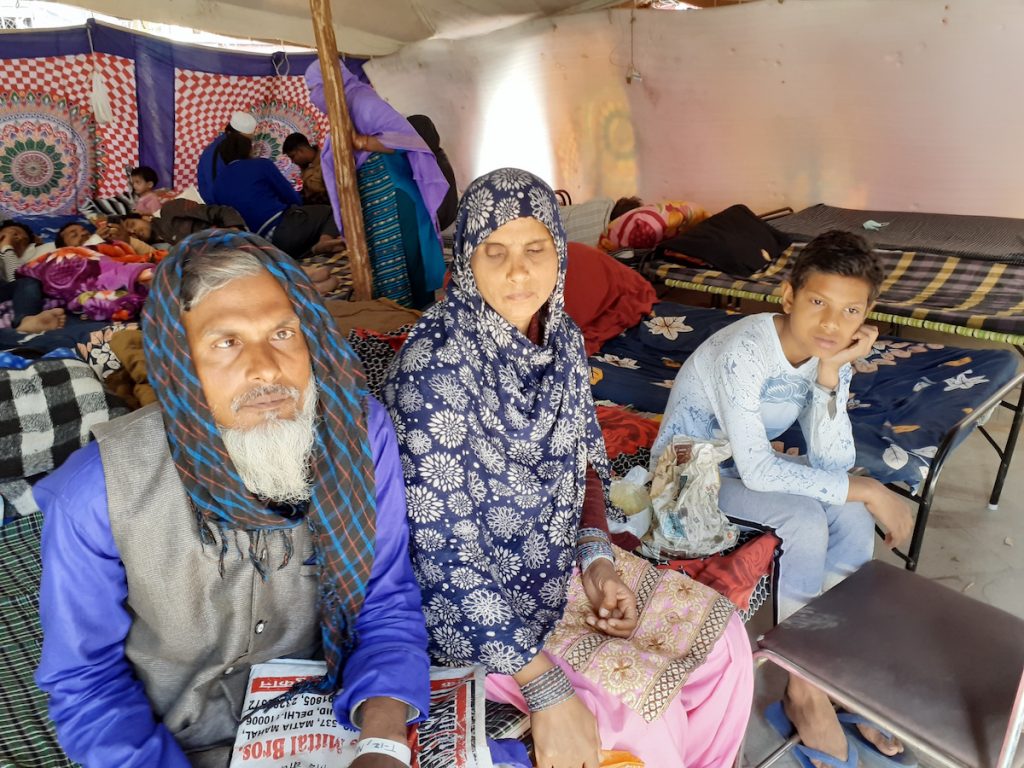Rahim Khan sobbed inconsolably. “I could not save my brother,” he said. “The rioters shot and dragged him to our garage and then torched him as I watched helplessly from the terrace.”
Khan said that his Hindu neighbour saved him and his family from the mob during communal riots that rocked the north-east of the Indian city of Delhi during the last week of February.
“But my brother Raees could not escape their clutches and there was nothing I could do,” he said as a steady flow of tears streamed down his cheeks.
Khan’s family were among the victims of the riots that left 53 dead, hundreds injured, and thousands homeless. Delhi Deputy Chief Minister Manish Sisodia said 79 houses and 327 shops were gutted during the rioting.
Another affected by the violence was Ruksana, a visibly pregnant woman with a toddler in her arms. She wailed loudly as she identified her husband’s body at the Guru Tegh Bahadur Hospital mortuary. Her aunt said Ruksana identified her husband by the sleeve of his shirt, one that she had only recently bought.
Around the same time the cries of Mehrunissa Khatun were heard at the Eidgah Relief Camp at Mustafabad in east Delhi.
Khatun told LiCAS.news that on Feb. 24, they were having lunch and celebrating her elder son Shakeel’s 20th birthday. While eating, a commotion erupted outside and Shakeel went to see what was going on, only to be killed by a mob.

Two days of violence
The hard-line Hindu mobs who rampaged in the city were armed with Molotov cocktails, acid, gas cylinders, and in some cases firearms.
They targeted Muslims and torched their establishments. Among the hundreds of houses and shops were 19 mosques that were vandalized in Muslim majority areas east of the national capital. The affected areas such as Shiv Vihar, Jaffrabad, Bhajanpura, and Mustafabad are resettlement colonies.
The poor and marginalized Muslims in these areas live in small tenements, said Father Arunmozhi Ramesh SJ, who is helping the victims file reports with the authorities on the loss of life and property.
More than 700 cases have been file and nearly 2,400 people have either been detained or arrested. Some are alleging that police and state machinery remained largely inactive for over two days, during the worst of the violence.
Nomaan Saifi — whose family helped the riot victims — told LiCAS.news that during the chaos the police were of no help.
“The police refused to respond to our calls. Had police acted promptly the casualties would have been far less,” Saifi said.
Saifi’s affluent father sheltered more than 1,000 people, including 700 women and children over the course of the week of chaos in their large home and in adjacent houses.
Father P.R. John, the principal at Vidyajyoti College of Theology, Delhi, said they went to Saifi’s house to offer help.
“We found many injured and summoned medical help from St. Stephen’s and Holy Family hospitals,” Father John said.
“One lady Praveen Mukheem was in labor. She was immediately shifted to a hospital where she delivered a baby boy,” he said.
Inflammatory speeches
Some observers blame inflammatory speeches made by ruling Bharatiya Janata Party leaders for the violence; speeches that were made following mass protests against the Citizenship Amendment Act (CAA) that was passed last December.
The new law provides a path to citizenship for Buddhist, Christian, Hindu, Jain, Parsi, and Sikh practitioners, but not Muslims, fleeing persecution from Pakistan, Bangladesh, and Afghanistan.
Rights activists have said the CAA is against the Indian Constitution that upholds secularism and that the law favors the agenda of Hindu hardliners.
Muslims make up 200 million of India’s 1.3 billion people.
Some anti-CAA activists clashed with those supporting the law, but later the situation took a communal turn.

‘The soul of our nation’
In the wake of the violence, the Delhi Archdiocese offered assistance — medical, financial, counselling and legal aid — to riot-affected areas.
Archbishop Anil Joseph Thomas Couto of Delhi, who visited affected areas, said he was filled with a deep sadness over what has occurred.
“The soul of our nation has been torn apart and with such brutality,” Archbishop Couto said.
In response the prelate asked his parishes to provide all possible help.
The social wings of the archdiocese — Chetanalaya and Caritas India, Catholic Hospitals Association of India (CHAI), Conference of Religious of India (CRI) — have helped with finance and provisions. Among those helping are lawyers, teachers, medical staff and counsellors.
Nuns from the Holy Family Hospital and congregations have counselled trauma stricken women and children while Capuchin Father Alex Joseph threw open a friary for relief work while organizing volunteers to work at the Eidgah camp.
Anshu Anthony, an advisory council member of Delhi Minorities Commission (DMC) and the main coordinator of the Church’s relief efforts, said rehabilitation plans to assist the people affected by the riots are underway.
“We have the data feed from 263 families. The package includes household goods and rations,” he said.
Many students have been affected by the riots, Father John said.
“Efforts by the Church have been made to assist students appearing for their 10th and 12th grade examinations with free boarding, books and tutors,” he said.
Father John said his college want to start courses probably by July for the students of affected areas. Study centres will be setup to provide “peace classes”, motivational courses and career guidance courses.
Lay Catholics have also pitched in to help with retired Supreme Court Justice Kurien Joseph donating Rs 200,000 ($2,616) towards the marriage of two riot affected girls. Joseph said the gesture is to counter hate with love as the Lord teaches.

Further examples have been seen at the Eidgah camp, where Catholic health workers from the Holy Family Hospital established a medical tent. Medicines were provided by the CRI and other church initiatives.
In what us usually an open prayer area, the camp is housing more than a 1,000 people. Despite the cramped conditions many in the camp told LiCAS.news they felt safe there despite the coronavirus threat which has recently resulted in all of India being placed on lockdown for three weeks beginning March 25 as the country recorded 536 cases of the disease and 10 deaths.
Nawab Khan, his wife and sons said they don’t want to leave the camp. Their house was vandalized during the riots.
“We don’t know where to go and what to do? The fasting month of Ramzan is also fast approaching,” Khan said.









